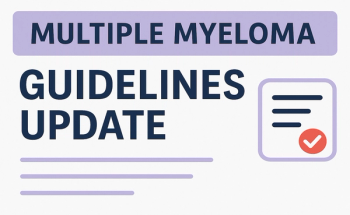
Pemigatinib: EMA Panel Offers Conditional Nod for Pemigatinib
The EMA panel's nod pemigatinib in bile duct cancer is the latest positive news for the targeted therapy after its FDA approval and appearance in the NCCN Guidelines.
The European Medicine Agency’s Committee for Medicinal Products for Human Use (CHMP) has recommended conditional marketing authorization for pemigatinib, sold as Pemazyre by Incyte, for patients with locally advanced and previously treated cholangiocarcinoma, or metastatic cholangiocarcinoma with a fibroblast growth factor receptor (FGFR) 2 gene fusion or rearrangement.
Cholangiocarcinoma is a rare, aggressive type of cancer that occurs in the bile ducts, the slender tubes that carry digestive fluids through the liver. Patients are typically diagnosed when cancer has reached a late stage, and their prognosis is poor. The kinase inhibitor pemigatinib is a selective, potent inhibitor of FGFR1, 2, and 3; this targeted therapy is given orally.
“The positive CHMP opinion is a crucial milestone for patients with cholangiocarcinoma, who often have very limited treatment options due to the difficulty of identifying patients during the early disease stages," Peter Langmuir, group VP of oncology targeted therapeutics at Incyte, said in a statement following the action
“Following the recent FDA approval of pemigatinib, we are delighted to be closer to offering the first targeted therapy in Europe to benefit these patients,” he said.
In August 2020, the National Comprehensive Cancer Network (NCCN) updated its Clinical Practice Guidelines in
Both the EMA and
- Patients with FGFR2 fusions or rearrangements
- Patients with other types of FGF or FGFR genetic alterations
- Patients with no FGF or FGFR genetic alterations
All enrolled patients received a starting dose of 13.5 mg oral pemigatinib once daily for a 21-day cycle (2 weeks on, 1 week off) until disease progression, unacceptable toxicity, withdrawal of consent, or a decision by a physician to stop treatment. The primary endpoint was the share of patients who achieved an objective response among those with FGFR2 fusions or rearrangements, with this proportion assessed centrally among those patients who received at least 1 dose of pemigatinib.
Of the 107 patients in the study with previously treated and locally advanced or metastatic cholangiocarcinoma who had documented FGF/FGFR status, results showed an objective response rate of 36%. Three patients achieved a complete response following treatment with pemigatinib.
The study was published in Lancet Oncology,1 and this citation is now listed in the NCCN Guidelines update.
Hyperphosphataemia, or abnormally high phosphate levels, was the most common all-grade adverse event (AE), irrespective of cause, and seen in 88 of the 146 patients (60%). Of the 146 enrolled in the overall study, 93 (64%) had a grade 3 or worse AE; other common events were hypophosphataemia, with 18 patients (12%); arthralgia, 9 patients (6%); stomatitis, 8 patients (5%); hyponatraemia, 8 patients (5%); abdominal pain, 7 patients (5%); and fatigue, 7 patients, (5%).
Seventy-one patients (49%) died during the study, most often due to disease progression (42%), and no deaths were related to the treatment.
Overall, 71 (49%) patients died during the study, most frequently because of disease progression (61 [42%]); no deaths were deemed to be treatment related.
Reference
1. Abou-Alfa GK, Sahai V, Hollebecque A et al. Pemigatinib for previously treated, locally advanced or metastatic cholangiocarcinoma: a multicentre, open-label, phase 2 study. Lancet Oncol. 2020;21(5):671-684. doi: 10.1016/S1470-2045(20)30109-1
Newsletter
Stay ahead of policy, cost, and value—subscribe to AJMC for expert insights at the intersection of clinical care and health economics.








